
Bait AlGhasham DarArab International Translation Prize
International Prize for Translating Arabic Literature Into English - 3rd Round 2026
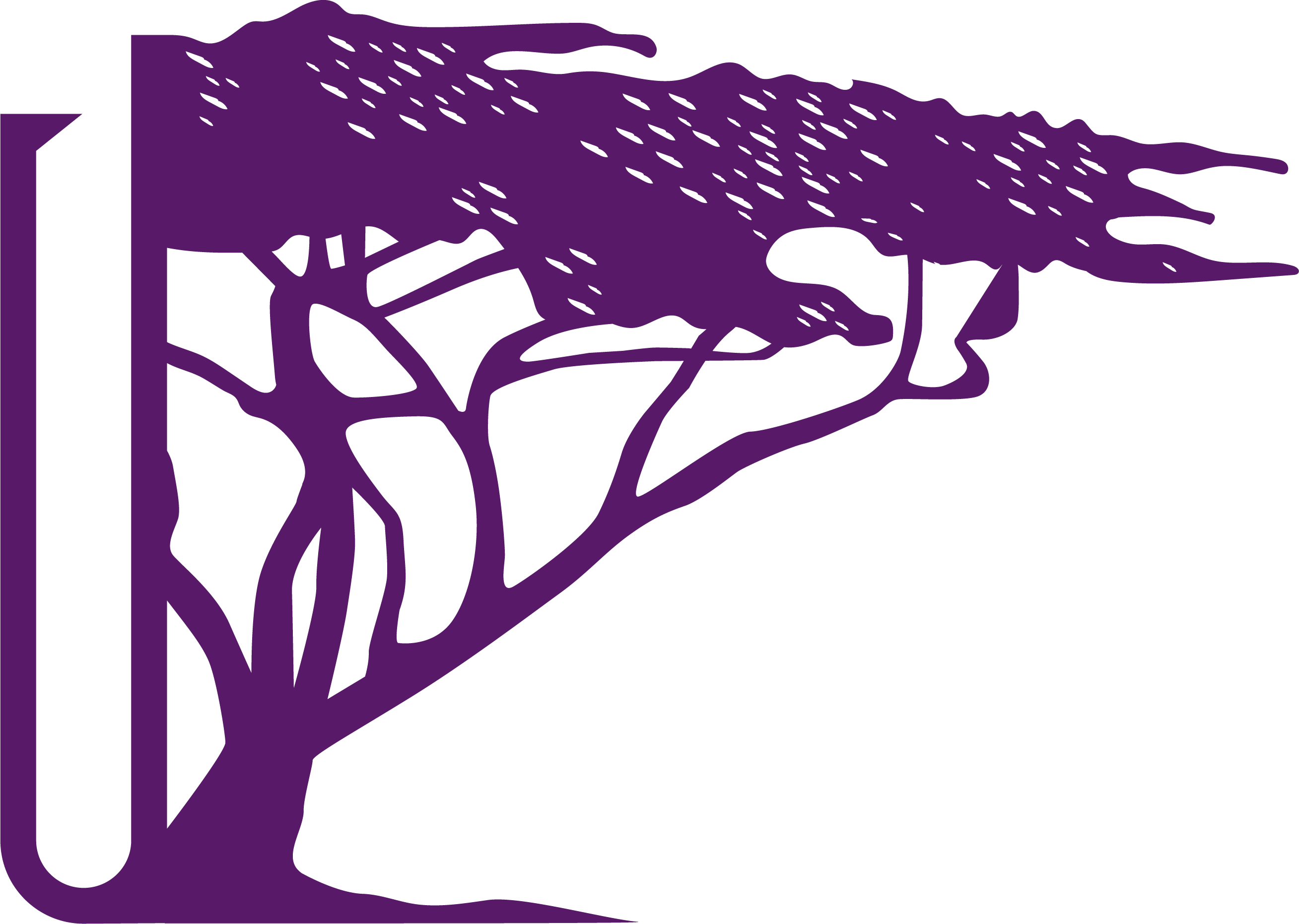
- Introduction
Bait AlGhasham DarArab International Translation Prize is a cooperation between Bait AlGhasham for Press, Publishing, and Advertising (Oman) and DarArab for Publishing and Translation (United Kingdom) that have started on 2023. Each year, this prize acknowledges and honours outstanding Arabic literature by making it intern ationally accessible through translation into English. This prize honours the significant role that translation plays in promoting understanding and communication among cultures, languages, and individuals worldwide. The prize is funded by Bait AlGhasham and managed by DarArab.
Bait AlGhasham for Press, Publishing and Advertising, the Prize funder, is a private cultural and media foundation, was established in 2012 by Sayyid Ali bin Hamood bin Ali Al Busaidi to promote Arab culture at various levels in publishing, translation and creativity.

- 1970
In honour of the memory of Sultan Qaboos Bin Said (1940 – 2020), the late sultan of Oman, the Bait AlGhasham DarArab International Translation Prize has set the year 1970 as a watershed year for the Translators category. For submissions in this category, the first edition of the original work must have been published after or during the year 1970. In addition to broadening the eligibility for submissions while still focusing on the modern Arabic literature, 1970 is a milestone year in the history of Oman and its contributions to Arabic literature. In 1970, Sultan Qaboos ascended to the throne and, since then, he has not only been known as the father of modern Oman but also for his numerous contributions to international literature and scholarship. Sultan Qaboos has established 16 academic chairs across many countries, including the United Kingdom, the United States of America, Australia, Netherlands, China, and Japan. Most of these chairs are dedicated to Arabic language, Arabic literature, and Middle Eastern studies.

- Vision & Mission & Objectives
Vision
To create a more interconnected global literary community, where English-language readers can access and appreciate literature originally written in Arabic, and where translators’ efforts are valued and supported for their vital role in making this possible.
Mission
This prize aims to acknowledge and honour exceptional translations of literature from Arabic to English. Its mission is to foster cultural exchange and understanding between diverse linguistic and cultural communities, while emphasising the critical role of translation in making literature more widely accessible. In addition, by providing financial and professional support to translators, the prize also aims to encourage their ongoing efforts in expanding the availability of diverse Arabic literary works into English.
Objectives
1. To address the lack of diverse literary works translated from Arabic and published in English.
2. To introduce modern Arabic literary works to English-speaking readers worldwide.
3. To increase the exposure of Arab writers and their works to a worldwide audience.
4. To acknowledge, appreciate, and support the ongoing endeavours of Arabic language authors and Arabic-English translators.

- Prize Values & Categories
Prize Value
The total value of the prize is £60,000 and is allocated for two purposes: First, as a financial reward for the winners of the prize. Second, to cover the expenses of translating, editing, publishing, and marketing the winning works.
Eligible Genres: Novels, Short-Story Collections, and Poetry Collections.
The prize consists of three categories:
1- Translators Category
“Prize for an Unpublished Translation of a Published Literary Work”.
This category is reserved for literary works that have originally been published in Arabic but are yet to be translated into English. The first edition of the work must have been published during , or after, the year 1970.
The application should be submitted by the Translator of the work.
The total prize fund for this category is approximately £20,000. The winning work will receive:
– £2,000 for the author of the winning work only.
– £2,000 for the winning translator/s plus the cost of the translation itself, based on the pricing approved by the Society of Authors in the United Kingdom, currently £100 per thousand words for prose and for poetry a £1.10 per line with a minimum of £35 per poem.
The remaining budget will be used to cover the expenses of editing, publishing, and marketing the winning translation. The winning translation will be exclusively published by DarArab for Publishing and Translation.
2- Authors Category
“Prize for Unpublished Arabic Literary Work”.
This category is dedicated to unpublished literary works in the Arabic language that fall within the specific areas of the above literary genres.
The application should be submitted by the Author of the work only.
The total prize fund for this category is approximately £22,000.
– The winning author will receive a cash prize of £2,000. In addition to publishing the work in Arabic, the work will also be translated and published into English.
The remaining budget will be used to cover the expenses of translating, editing, publishing, and marketing the winning work. The winning work will be exclusively published in both languages by DarArab for Publishing and Translation.
3- Omani Publications Category
“Prize for published Omani Literary Work”.
This category is dedicated to Omani published literary works in the Arabic language that fall within within the specific areas of the above literary genres.
The application should be submitted by either the Author or the Publisher of the work.
The total prize fund for this category is approximately £18,000.
– £2,000 for the author of the winning work.
The remaining budget will be used to cover the expenses of translating, editing, publishing, and marketing the winning work. The translation of the winning work will be exclusively published by DarArab for Publishing and Translation.

- Board of Trustees
1- Marilyn Booth, (Chairman – USA)
Marilyn Booth is Professor Emerita at the Faculty of Asian and Middle Eastern Studies and Magdalen College, Oxford University. Her research focuses on Arabophone women’s writing and gender ideology debates in the nineteenth century, most recently illustrated by her work “The Career and Communities of Zaynab Fawwaz: Feminist Thinking in Fin-de-siècle Egypt” (Oxford University Press, 2021). She has translated numerous works of Arabic fiction into English. Notably, her translation of “Celestial Bodies” by Omani author Jokha Alharthi won the 2019 Man Booker International Prize. She has also translated “Bitter Orange Tree” and “Silken Gazelles” by Alharthi. Other authors she has translated include Hoda Barakat, Hassan Daoud, Elias Khoury, Latifa al-Zayyat, Nawal al-Saadawi, and Zahran Alqasmi. Upcoming translations include Syrian Kurdish author Jan Dost’s “Safe Corridor” (DarArab), as well as her first venture into translating nineteenth-century fiction with Alis al-Bustani’s “Sa’iba” (Oxford World’s Classics). She and Jan Dost were the recipients of the first round of Bait AlGhasham DarArab international Translation Award (2024).
2- Mohamed Alyahyai, (Member – Oman)
Mohamed Alyahyai is an accomplished author, journalist, researcher, and documentary film maker. In the past thirty years, he has held leading media roles in Oman, the US, and Qatar. In addition to his literary and media achievements, he has initiated and taken part in several cultural initiatives in Oman, such as the Omani Short Stories Society (1986) and the Muscat Poetry Festival (1996), of which he has been the head of its organising committee. He has published several books, including novels and short-story collections, and works on media, politics, and history, in addition to several articles. Some of his works have been translated into English, Spanish, German, and Swedish. He has produced four long-form documentary films. Alyahyai holds a Ph.D. in modern history and has a distinguished fellowship from the International Forum for Democratic Studies in Washington DC.
3- Sawad Hussain, (Member – UK)
Sawad Hussain is a translator from Arabic whose work has been recognised by English PEN, the Anglo-Omani Society and the Saif Ghobash Banipal Prize for Arabic Literary Translation, among others. She is a judge for the Palestine Book Awards and the 2023 National Translation Award. She has run translation workshops under the auspices of Shadow Heroes, Africa Writes, Shubbak Festival, the Yiddish Book Center, the British Library and the National Centre for Writing. Her most recent translations include Black Foam by Haji Jaber (AmazonCrossing) and What Have You Left Behind by Bushra al-Maqtari (Fitzcarraldo Editions).
Her website is: https://sawadhussain.com
Tasks of the Board
● Adoption of the prize’s statutes.
● Approving the members of the arbitration committees for each edition of the prize.
● Approving the results of the prize’s arbitration committees.

- Judges
Judges of 2026 round will be announced in April 2025
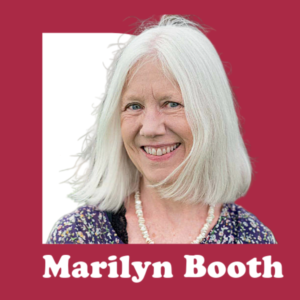 Marilyn is Professor Emerita at the Faculty of Asian and Middle Eastern Studies and Magdalen College, Oxford University. Her research focuses on Arabophone women’s writing and gender ideology debates in the nineteenth century, most recently illustrated by her work “The Career and Communities of Zaynab Fawwaz: Feminist Thinking in Fin-de-siècle Egypt” (Oxford University Press, 2021). She has translated numerous works of Arabic fiction into English. Notably, her translation of “Celestial Bodies” by Omani author Jokha Alharthi won the 2019 Man Booker International Prize. She has also translated “Bitter Orange Tree” and “Silken Gazelles” by Alharthi. Other authors she has translated include Hoda Barakat, Hassan Daoud, Elias Khoury, Latifa al-Zayyat, and Nawal al-Saadawi. Upcoming translations include Omani author Zahran Alqasmi’s “Honey Hunger” (Hoopoe) and Syrian Kurdish author Jan Dost’s “Safe Corridor” (DarArab), as well as her first venture into translating nineteenth-century fiction with Alis al-Bustani’s “Sa’iba” (Oxford World’s Classics). She and Jan Dost were the recipients of the first Bait AlGhasham/ DarArab Translation Award (2024).
Marilyn is Professor Emerita at the Faculty of Asian and Middle Eastern Studies and Magdalen College, Oxford University. Her research focuses on Arabophone women’s writing and gender ideology debates in the nineteenth century, most recently illustrated by her work “The Career and Communities of Zaynab Fawwaz: Feminist Thinking in Fin-de-siècle Egypt” (Oxford University Press, 2021). She has translated numerous works of Arabic fiction into English. Notably, her translation of “Celestial Bodies” by Omani author Jokha Alharthi won the 2019 Man Booker International Prize. She has also translated “Bitter Orange Tree” and “Silken Gazelles” by Alharthi. Other authors she has translated include Hoda Barakat, Hassan Daoud, Elias Khoury, Latifa al-Zayyat, and Nawal al-Saadawi. Upcoming translations include Omani author Zahran Alqasmi’s “Honey Hunger” (Hoopoe) and Syrian Kurdish author Jan Dost’s “Safe Corridor” (DarArab), as well as her first venture into translating nineteenth-century fiction with Alis al-Bustani’s “Sa’iba” (Oxford World’s Classics). She and Jan Dost were the recipients of the first Bait AlGhasham/ DarArab Translation Award (2024).
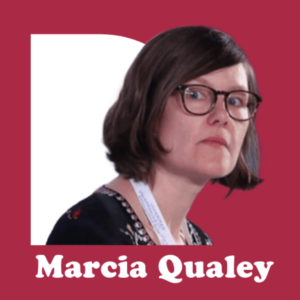
Marcia is an editor, writer, occasional translator, and speaker focusing on Arabic literature and translation. She founded ArabLit, which won a “Literary Translation Initiative” award at the 2017 London Book Fair and the 2024 Ottaway Award for the Promotion of International Literature, and has helped it grow into a small publishing cooperative. She reviews for various magazines and newspapers and has translated several novels, including the Palestine Book Award-winning “Wondrous Journeys in Strange Lands” by Sonia Nimr and Haya Saleh’s “Wild Poppies,” shortlisted for this year’s GLLI Award. She was shortlisted for the Banipal Prize for the first two novels in Sonia Nimr’s “Thunderbird” series. She is also a co-founder of the “WorldKidLit” initiative and co-hosts the BULAQ podcast, which explores the literature of the Maghreb and Mashreq. Her most recent collaboration is with Majalla 28, Special Spring Issue 2024: “Gaza! Gaza! Gaza!”
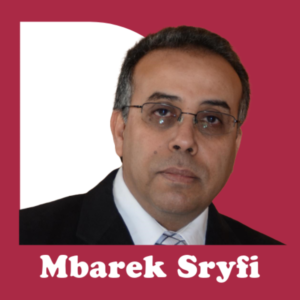
Mbarek is a poet, translator, and scholar. His work has been widely published in many journals, magazines, and anthologies, including Al-Arabiyya, Banipal, CELAAN Review, Metamorphoses, Middle Eastern Literatures, The Journal of North African Studies, Translation Review, World Literature Today, and ArabLit. Sryfi has co-authored “Perspectives: Arabic Language and Culture in Film” (Alucen Learning, 2009) and has translated and co-translated numerous works, including “The Monarch of the Square” (Syracuse University Press, 2014), “The Arabs and the Art of Storytelling” (Syracuse University Press, 2014), “The Elusive Fox” (Syracuse University Press, 2016), “The Blueness of the Evening” (Arkansas University Press, 2018), “The Handsome Jew” (DarArab, 2022), and “Alone by the Nile” (Diálogos, 2023). His forthcoming translations include Ahmed Vall Ould Dine’s “The Rock of the Land,” Younis Al Akhzami’s “Ras Madrakah,” and the poetry collection by Yaseen Al-Saeedi, the recipient of the first Bait AlGhasham/ DarArab Translation Award (2023) (DarArab). Sryfi published a chapbook, “The Trace of a Smile” (Moonstone Press, 2018), which shared first place, and two poetry collections, “City Poems – A Selection of Poems” (Éditions L’Harmattan, 2020) and “Chasing a Moving Landscape” (Diálogos, 2022), in addition to a selection in Arabic in two editions (The House of Poetry in Morocco, 2022 & Dar El Adham For Publishing & Distribution, 2023) and a forthcoming second collection in Arabic (Egypt, 2024).
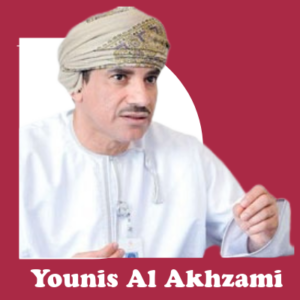
Younis Al Akhzami is an author from Oman. His work has been featured in various local, regional, and international literary forums. He served as the Head of the Short Story Writers in Oman from 2006 to 2007 and is one of the founders of the Society of Writers in Oman. He holds a Master’s degree in Information Systems Management (USA, 1994) and a PhD in Geographic Information Systems (GIS) (UK, 2000). His publications include Alnatheer (1992), Habs Alnawras (1996), Humma Ayar (1999), Nuqoosh (2007), Al Sawt (2012), Bar Alhekman (2016), Kahf Adam (2017), Ghabta Hashish (2018), Bedoon (2019), and Ras Madrakah (2022). He has also served as a judge for numerous literary contests, evaluating both short stories and novel manuscripts.
- Tasks of the Judges
The judges will select the top five works and choose a final winner based on the prize’s evaluation criteria. They will then submit their evaluation report explaining their process and considerations in shortlisting the five works and identifying the prize winners.

- How To Submit
Complete the entry form for the related category and upload soft copies of the required documents (PDF format is preferred).
Once submitted, the applicant will receive confirmation of receipt via email.
Please do not send soft copies of the work to our email unless we request you to
do so.
Applications for the 2026 cycle will be accepted from March 2025 – 31st July
2025.
Please direct any questions to: prize@dararab.co.uk.
Time till Submission Opens
- Submit Now